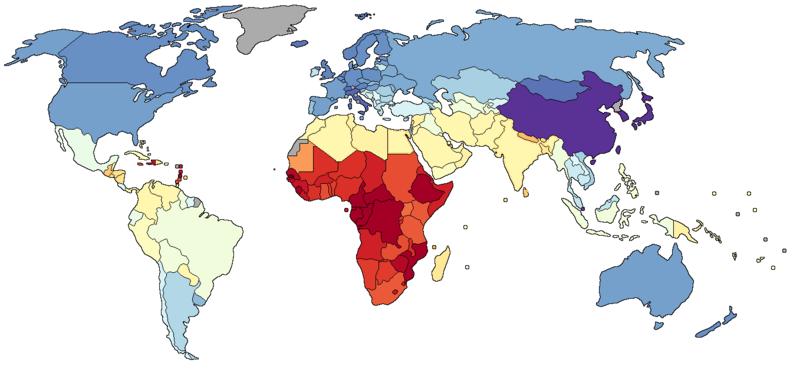Angela
Elite member
- Messages
- 21,823
- Reaction score
- 12,329
- Points
- 113
- Ethnic group
- Italian
If you like to think, this is an interesting question.
I think Razib Khan may have hit on the answer: it doesn't always lead to reproductive fitness.
See:
https://www.gnxp.com/WordPress/2018...al-intelligence-and-our-evolutionary-history/
Just one snippet:
"So let’s go back to intelligence. What could be the trade-offs? First, there are now results presented at conferences that very high general intelligence may exhibit a correlation with some mental pathologies. Though unpublished, this aligns with some prior intuitions. Additionally, there is the issue where on some characteristics being “species-typical” increases reproductive fitness (an average size nose), while in other characteristics being at an extreme is more attractive (very curvy women with large eyes and small chins; secondary sexual characteristics). Within intelligence, one could argue that being toodeviated from the norm might make socialization and pair-bonding difficult."
"Humans have large brains for our size. We are smarter than other primates. But evolutionary genetics today seems to be coming to the conclusion that it wasn’t a quantum jump, but gradual selection and change. Having a very low intellectual capacity was probably correlated with low fitness in the past (though small brains are calorically less greedy).But, having a very high general intelligencedoes not seem to have resulted in that great of a gain in social or cultural status in comparison to being of normal intelligence. In fact, if the genetic correlation is such that it’s associated with some higher risk for mental instability, it could simply be that a form of stabilizating selection over time kept humans within the “normal range” because that was evolutionarily optimal. Be smart enough. But not too smart that you are weird.
And, as theorists from cultural evolution have observed, we are a “hive-mind” which leverages collective wisdom. Most of us don’t have to derive mathematical equations, we can use the formula provided to us. Though it’s useful to have a few people around who can invent statistics that the rest of us use…"
I think Razib Khan may have hit on the answer: it doesn't always lead to reproductive fitness.
See:
https://www.gnxp.com/WordPress/2018...al-intelligence-and-our-evolutionary-history/
Just one snippet:
"So let’s go back to intelligence. What could be the trade-offs? First, there are now results presented at conferences that very high general intelligence may exhibit a correlation with some mental pathologies. Though unpublished, this aligns with some prior intuitions. Additionally, there is the issue where on some characteristics being “species-typical” increases reproductive fitness (an average size nose), while in other characteristics being at an extreme is more attractive (very curvy women with large eyes and small chins; secondary sexual characteristics). Within intelligence, one could argue that being toodeviated from the norm might make socialization and pair-bonding difficult."
"Humans have large brains for our size. We are smarter than other primates. But evolutionary genetics today seems to be coming to the conclusion that it wasn’t a quantum jump, but gradual selection and change. Having a very low intellectual capacity was probably correlated with low fitness in the past (though small brains are calorically less greedy).But, having a very high general intelligencedoes not seem to have resulted in that great of a gain in social or cultural status in comparison to being of normal intelligence. In fact, if the genetic correlation is such that it’s associated with some higher risk for mental instability, it could simply be that a form of stabilizating selection over time kept humans within the “normal range” because that was evolutionarily optimal. Be smart enough. But not too smart that you are weird.
And, as theorists from cultural evolution have observed, we are a “hive-mind” which leverages collective wisdom. Most of us don’t have to derive mathematical equations, we can use the formula provided to us. Though it’s useful to have a few people around who can invent statistics that the rest of us use…"


